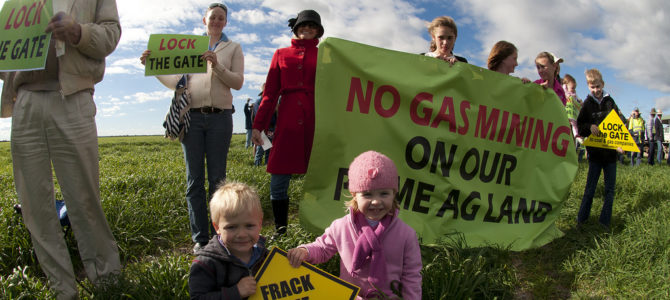
If any feeling defines the Trump Era, it’s anger. Without channeling the anger of Americans who felt ignored by Washington, Donald Trump might never have been elected president. And since the 2016 election, anger — even white-hot rage — has fueled his political Resistance.
This is the emotionally polluted air we, including our children, are all breathing, and that exposure may not be healthy. Damon Winter, a staff photographer for The New York Times’ opinion section, draws our attention to that point with his recent photo essay featuring three photographs of children at Trump rallies.
Given The Times’ general unwillingness to understand anyone to their political right, Winter’s photographs offer Times readers a rare and much-needed window into some real people who supported Trump in 2016. Winter, a father, writes, “During the last few weeks of Donald Trump’s presidential campaign in the fall of 2016, I found myself seeking out increasingly tender and empathetic photographs of his supporters.”
Winter reflects, “In those final weeks, I remember being heartbroken that children were exposed to this anger, were learning from it and participating in it. I knew those parents loved their children just as I do mine, and that common bond was my reminder of their humanity and my own. I was searching for a way to connect in an environment that felt so toxic and violently polarized.”
Winter’s heartbreak reminded me of my own reaction, when I heard about children as young as preschoolers who cried upon hearing that Hillary Clinton had lost. I don’t doubt that those children’s parents love them, but I worried about the anger or fear that drove those children to tears over a national election they likely didn’t even understand. I also wondered if Winter had ever taken pictures of children at Resistance-related rallies. But I digress.
To be fair, let’s consider how Winter makes his own point: Of the three photos he shares, two feature girls wrapped peacefully in their fathers’ arms. We can only imagine what they make of the spectacle around them. The third photo is the only one blazing with anger. A close-up of a boy dressed in a white button-down shirt and red tie, it’s captioned, “Jaden Rams, with his father behind him, jeering during a campaign event in 2016 for then-candidate Trump.”
If we’re worried about children mimicking the angry behavior of adult crowds, Jaden’s picture is the one worth discussing. But rather than focus on Jaden’s father, who Winter writes “beamed with pride. [while] Vitriol sputtered from his son Jaden’s mouth [“Lock her up!”],” it seems more useful to contemplate what this says about the rest of us, because while Winter makes a good point, he makes it too narrowly for my taste.
All parents are responsible not only for the safety, but also the emotional well-being of their children. Some parents may conclude that such care allows, or even necessitates, exposing their young children to politics, including any associated anger or violence. This parent is consciously making the opposite choice, though.
For as long as possible, I intend to shield my three young daughters from politics and other adult concerns. I prefer that their childhood be filled with typical kids’ activities and preoccupations, for the sake of their health and happiness.
Politics is a tricky business, and never more so than when you’re a parent. In a home without children, adults can keep their controversial opinions to themselves. But once children arrive, every parent is in the position of an elected official. Rather like a reporter, your curious child may ask countless questions to suss out what you think and why.
When your children are trying to make sense of a tumultuous and complicated world, what do you tell them? Are people who disagree with your worldview political adversaries or personal enemies? Is your goal to reassure or to convey fear?
I favor reassurance. My children aren’t miniature adults, and I don’t want to give them nightmares or burden them with fears and stresses that their brains aren’t yet equipped to handle.
We don’t all parent alike, which is as it should be. In the immortal words of Sandra Boynton, “You have to be you, we have to be we.” However, there are still some things great parents seem to have in common and from which we could all learn.
First, they manage their own anxieties, rather than asking their children, either directly or indirectly, to help. Second, they’re flexible and responsive to their own children’s needs. So, if children are young or sensitive, those parents don’t expose them to things that they know their children can’t handle.
In our current political climate, that means shielding most, if not all, kids from political ugliness, left and right, until they’re old enough to understand policy and nuance. Really, what’s the rush? They’ll have plenty of years to be bent out of shape over politics later. Let them enjoy childhood now.









